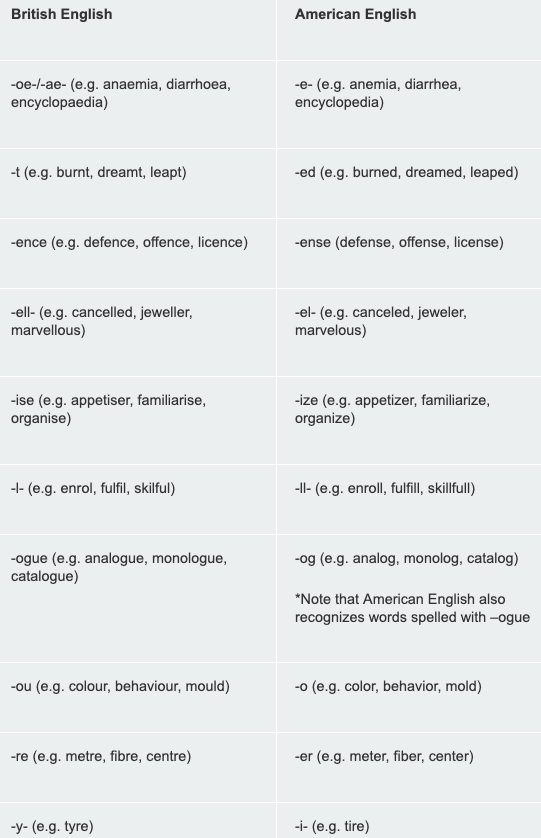Examples of embarrassing spelling errors can be found all over the World Wide Web. From the White House Press’s misspelling of UK Prime Minister Theresa May’s name (referring to her as Teresa May, a prominent figure in the adult industry) to the Royal Australian Navy having an extra “L” on their badges (“Australlia”), one thing is for certain:
Misspelling a word can destroy your authority.
Spelling a word incorrectly makes a person or brand appear careless at best, uneducated at worse.
One study found that spelling errors can cost millions of dollars in lost sales. Based on their data, it takes only one spelling mistake to potentially cut an online company’s sales in half.
Where the misspelt content is posted will make a difference in how it’s perceived. Social media, for example, tends to be more forgiving than if the spelling error was found on a website main pages, in a piece of research, or on a brochure. Despite this, it’s important that you always put your best face forward to protect the reputation of yourself and your brand.
US English and UK English, Same But Different
In writing this, I am not saying that either UK English or US English is correct, or preferred by me. Which is used will solely depend on your audience, and if you are targeting/targetting the English speaking world, then most of my clients default to US English as it is often their biggest potential market.
The graphic below will illustrate the most common differences between the two.

So putting aside these differences in spelling, let’s look at what I really mean by misspelt words.
The Five Most Commonly Misspelt Words
How about we kick this list off with a bit of irony?
Correct Spelling: Misspell
Incorrect Spelling: Mispell
The trick to this one is remembering that the word “mis-” is added to the word “spell”, giving you double the S’s in the middle.
Correct Spelling: Definite
Incorrect Spelling: Definate
Definite is defining something as being “finite” – having restrictions and being limited. Remember this in order to kick that “finate” misspell to the curb.
Correct Spelling: Separate
Incorrect Spelling: Seperate
This oldie but goodie is best remembered by telling yourself that there is a “rat” (arat) in the middle of separate.
Correct Spelling: Consensus
Incorrect Spelling: Concensus
The “sensus” part of the word “consensus” is Latin and means to agree or share a common feeling with another person.
Correct Spelling: Accommodate
Incorrect Spelling: Accomodate
With this one, remember that the word is big enough to accommodate two Cs and two Ms.
What Spell Check Doesn’t Pick up
Other common misspellings are transposed letters that may create a word but aren’t the word you intended it to be (like “tow” instead of the word “two”) and using incorrect grammar (such as “there” instead of “their” or “they’re”). Because all are actual words, unless it is a very sophisticated spell checker, these won’t be identified as misspellings.
How to Save Yourself From Incorrect Spelling
Fortunately, there are a number of steps you can take to save yourself from posting spelling errors online.
- Spellcheck
It takes just a few seconds to run a spellchecker through your work. Though it won’t catch everything, it will catch the bulk of your spelling errors. - Share your work
Having a second set of eyes read your work will go a long way in eliminating spelling errors. You may also receive some valuable feedback on your work. - Fix mistakes as soon as they become apparent
Don’t wait for weeks to fix a spelling error on a blog, a web page, or any publication (both online and off!). The sooner you fix it, the fewer the number of people who will see it and possibly get a poor impression of you or your company.
The Steps I Take To Eliminate These Errors
All of the work that my team (located in Australia, UK, and North America) and I create is firstly run through Copyscape to as much as possible eliminate the occurrence of duplicate content. We strive to always provide plagiarism-free content, though sometimes, just by virtue of the topic duplications can occur. Copyscape picks up when this might occur, and we can modify the copy accordingly.
Secondly, all content goes to my New Zealand proofreader, who checks references, and looks for any spelling and grammatical errors, before sending on to me for a final read through before delivery to client.

Of course, I understand that your business might not have these resources at your fingertips, which is why outsourcing your content writing is an ideal way to ensure your content is on point, and helps to position your company as one with knowledge and authority.
I invite you to contact me directly to learn how I may be able to help your business shine.
Kerry

Leave a Reply